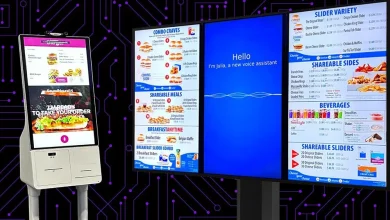Jays fans swing — and miss — at securing face-value tickets to the World Series

Toronto Blue Jays fans are already facing an uphill battle even before the World Series against the Los Angeles Dodgers begins — trying to secure tickets to a home game.
Legions of Jays fans queued up on Ticketmaster on Wednesday to try and get tickets, which went on sale at 10 a.m. eastern time. But face-value admission was scooped up quickly, according to fans, leaving only pricey resale ones in their place.
Greg Overmonds was one of them. He logged in at 9:45 a.m. to try and get tickets, and wound up about 22,000th in line when he got his queue spot. At 10:25 a.m., he says he got a notice on-screen that said ticket inventory was limited, and only made it to the front of the line by 10:40 a.m.
By then, “they were all sold out and the only thing I could find was a $1,600 resale ticket in the 500 level,” which he said was out of his budget.
“It feels like we’re being excluded from something that we’ve been so dedicated for,” Overmonds told CBC News. “To think that people … bought these tickets and just jacked them immediately, it’s just so disheartening.”
If you’re in the mood to splurge, there are still plenty of tickets available through Ticketmaster’s verified resale for all four games in Toronto.
The cheapest tickets in the house for Game 1 in Toronto, as of midday Wednesday, seated far from the field in the 500s section, would run you more than $1,300 apiece.
Prime real estate behind home base is more sparse, with tickets priced anywhere from $3,600 to more than $8,000, depending on how far back you feel like sitting. And the priciest seat in the house? More than $10,000 per ticket, for prime seats.
Other ticketing sites like StubHub have similar offerings — nosebleed tickets for about $1,300, and better ones in the $6,000 range.
A few dominant companies
Vass Bednar, managing director of the Canadian SHIELD Institute, a non-partisan think tank, says the situation highlights just how much digital systems have changed the ticket-buying landscape.
While the resale market on platforms like Ticketmaster has helped buyers avoid scams, Bednar says it’s also meant that each and every ticket sale is brokered by a big company.
Greg Overmonds is a Toronto Blue Jays fan. Despite his efforts, he says he wasn’t able to get tickets for face value to see the Jays face off against the Dodgers in the World Series. (Mehrdad Nazarahari/CBC)
And in the case where the ticket-selling company is also handling resales, that means it can “sell the same ticket twice … and take all of the associated fees,” Bednar told CBC News. “So who ends up really winning? The corporation that has formalized what was a hazy, informal secondary market.”
While Ticketmaster does have a face-value exchange policy that can cap the price of resale tickets at the amount buyers originally paid for them, artists have to choose to use the policy. U.K. band Oasis used the option for their recent tour, for example, capping tickets at $104 and $430, depending on their section, before fees and taxes.
Ticketmaster has also pledged to crack down on resellers, in part by not allowing users to have multiple accounts that would allow them to scoop up more than the allowed limit of four to six tickets for a single event. The company also said it would no longer allow the mass reselling of concert tickets, CBC has reported, but that rule would not extend to sports and theatre tickets.
The change comes after the U.S. Federal Trade Commission sued Ticketmaster in September, alleging that the platform and its parent company Live Nation co-ordinates with ticket brokers who bought tickets in the primary market and sold them at much higher rates. (The company disputes those claims and plans to challenge them in court.)
Ticketmaster did not respond to CBC News’ request for comment.
Legislation is lacking
Stephen Selznick, a partner with Cassels Brock & Blackwell LLP in Toronto, says there are rules around ticket pricing in some jurisdictions in Canada, but they tend to be limited to barring bots or requiring platforms to prove that resold tickets are authentic.
Quebec is the rare jurisdiction that caps resale prices. There, merchants can’t list their ticket for more than they paid for them originally, though the system isn’t free of loopholes.
Ontario passed legislation that would have capped ticket resale prices at 50 per cent above the original price, but it was scrapped in 2019 because it was “unenforceable,” according to then-consumer services minister Bill Walker.
Asked on Wednesday why his government scrapped that law in 2019 and if he might put forward further legislation to limit prices, Ontario Premier Doug Ford told reporters he was looking into it.
WATCH | How much will Blue Jays tickets and merch set you back?:
Blue Jays fans react to World Series ticket and merch costs
Baseball fans are set to bring their energy, and their wallets, to Toronto to see the Blue Jays play the first two games of the World Series. CBC’s Marianne Dimain and Meagan Fitzpatrick report on how much tickets and merch are going for.
“[Companies] are gouging the people. When you have one player in the market that controls the tickets, that’s not right for the people, so we’re actually reviewing that right now,” Ford said.
Selznick says the problem isn’t easy to solve because ticket prices are a limited commodity — there are only so many seats in a stadium, and the demand usually outpaces supply.
“When you have only, you know, 50,000 tickets to sell, you’re really at the mercy of the vendor when there’s a demand for more than that,” Selznick said.
Bednar says a policy that caps resale prices could help solve that problem. Legislation that limits dynamic pricing (prices that fluctuate based on market conditions, such as the time of day), or that requires sites to disclose the face-value price of a ticket during the resale process, are options that other countries have taken, she says.
“We’ve come to accept it as a norm right now, and I think people are starting to push back and reject that and say that it’s gotten a little bit out of control.”





